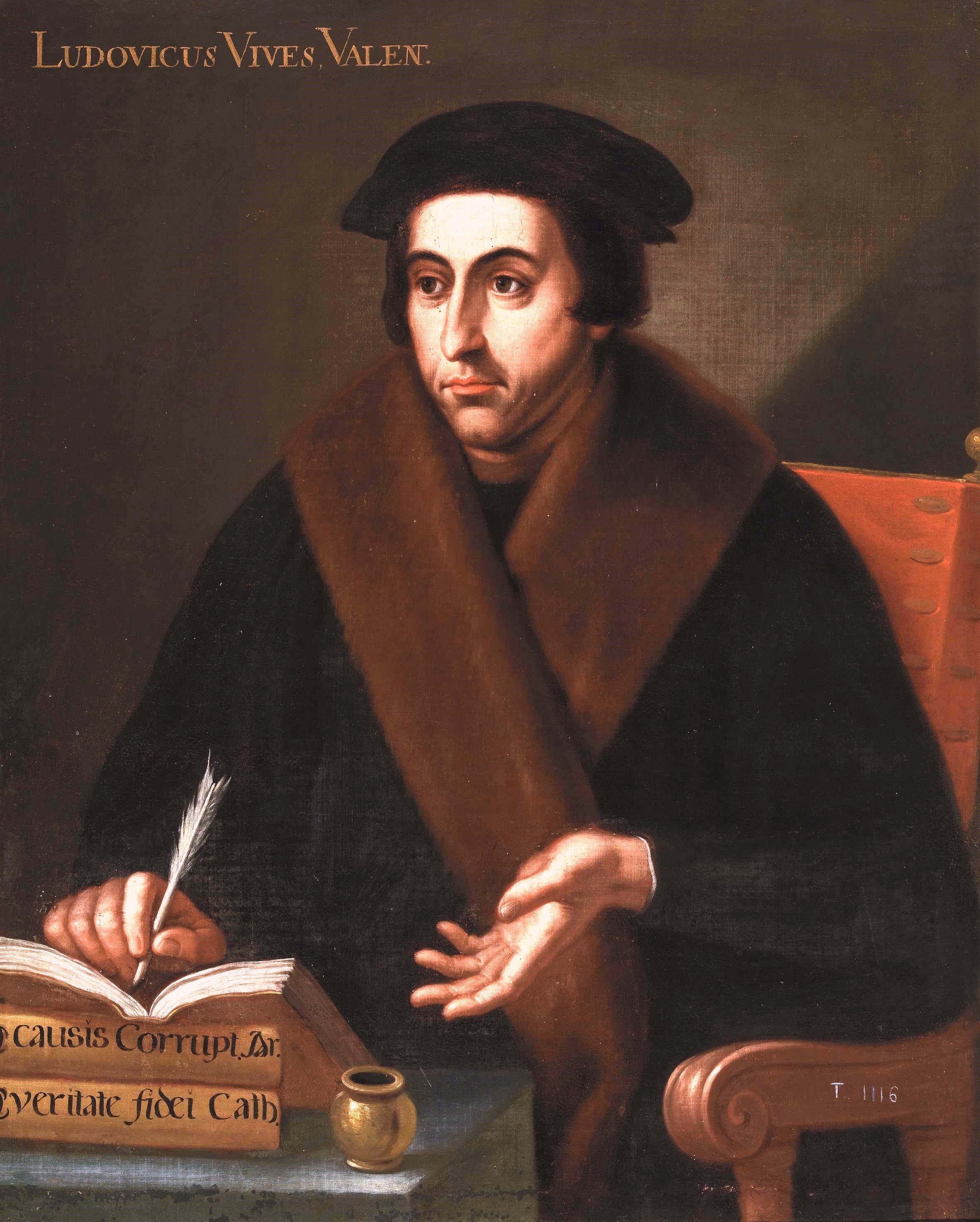
Juan Luis Vives
Juan Luis Vives y March (Latin: Joannes Lodovicus Vives, lit. 'Juan Luis Vives'; Catalan: Joan Lluís Vives i March; Dutch: Jan Ludovicus Vives; 6 March 1493[1] – 6 May 1540) was a Spanish (Valencian) scholar and Renaissance humanist who spent most of his adult life in the southern Habsburg Netherlands. His beliefs on the soul, insight into early medical practice, and perspective on emotions, memory and learning earned him the title of the "father" of modern psychology.[2] Vives was the first to shed light on some key ideas that established how psychology is perceived today.
In this Spanish name, the first or paternal surname is Vives and the second or maternal family name is March.
Juan Luis Vives
6 March 1493
6 May 1540 (aged 47)
Study of the psyche
State assistance for those in poverty[edit]
During the Middle Ages, poor relief was usually the responsibility of the Church and individuals through almsgiving. As society became more advanced, these efforts became inadequate. In 1525, the Dutch city of Bruges requested Vives to suggest means to address the issue of relief for the poor. He set out his views in his essay De Subventione Pauperum Sive de Humanis Necessitatibus (On Assistance To The Poor). Vives argued that the state had a responsibility to provide some level of financial relief for the poor, as well as craft training for the unskilled poor. The city of Bruges did not implement Vives's suggestions until 1557, but his proposals influenced social relief legislation enacted in England and the German Empire during the 1530s.